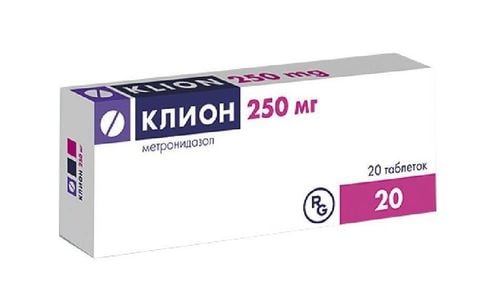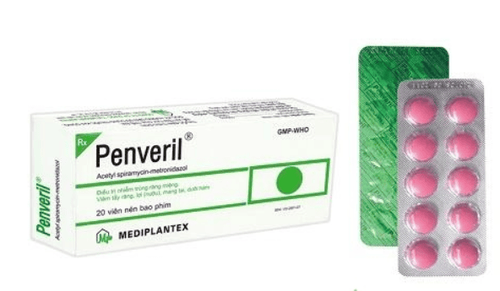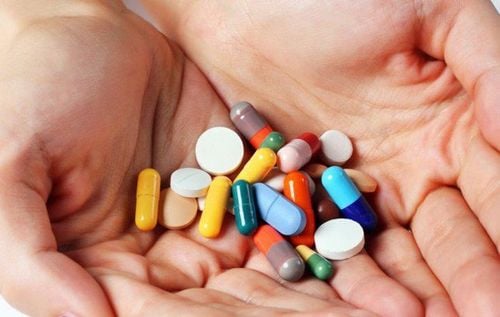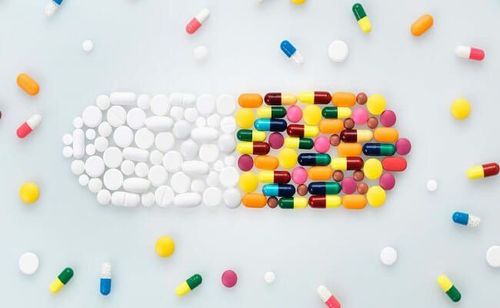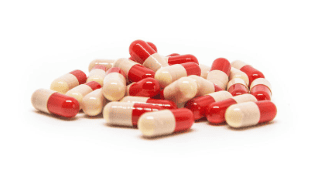This is an automatically translated article.
Gerdogyl is a specialized antibiotic used to treat acute or chronic, recurrent oral infections such as tooth abscess, inflammation, periodontitis, gingivitis, peri-jawbone cellulitis, periodontitis, and periodontitis. , stomatitis, submandibular inflammation, parotid gland inflammation...1. What does Gerdogyl do?
Gerdogyl is an antibiotic with the main ingredients being Metronidazole and Acetyl spiramycin. This drug is often indicated for the treatment of oral infections (acute or chronic) such as:
Recurrent tooth abscess; Cellulitis around the jawbone; Inflammation around the crown; Gingivitis; Stomatitis; Periodontitis ; Inflammation under the jaw; Inflammation of the parotid gland. In addition, Gerdogyl is also used to prevent dental infections after surgery.
2. Instructions for using Gerdogyl
Gerdogyl antibiotic is taken orally. The user should swallow the tablet whole (do not chew), take it with a full glass of water.
Suggested dosage:
Adults: Take 4-6 tablets, divided 2-3 times/day; Children 10-15 years old: Take 1 tablet, divided 3 times/day; Children 5-10 years old: Take 1 tablet, divided into 2 times/day.
3. Side effects of the drug Gerdogyl
During use, Gerdogyl can cause some side effects such as:
Digestive disorders:
Stomach pain, diarrhea, indigestion; Nausea, vomiting; The mouth has a metallic taste; Anorexia, decreased taste; Glossitis with dry mouth; Inflammation of the oral mucosa ; Pancreatitis (reversible); Pseudomembranous colitis ; Immune disorders:
Swelling of hands and feet; Swelling of the throat, lips and airways (angioedema); Allergies, hives; Anaphylaxis . Nervous system disorders:
Sensory polyneuropathy; Transient paresthesia (pins and needles sensation in limbs, decreased tactile sensation, decreased sensation of pain and heat, tingling sensation); Dizziness, headache; Convulsions, dizziness; Tired; Blood and lymphatic system disorders:
Neutropenia; Agranulocytosis; Decrease in the number of platelets in the blood. Patients should note and notify their doctor if they experience unwanted effects during the course of taking the drug.
4. Notes when using Gerdogyl
Gerdogyl is contraindicated in the following cases:
People who are sensitive to the active ingredient Metronidazol, Acetyl Spiramycin or Imidazol derivatives; There are liver complications; Women who are breastfeeding. Use with caution in people at risk of gastric ulcer, ileitis or chronic colitis.
The drug is formulated as a slow release film-coated tablet in the body, which may be inadvertently toxic to the elderly or slow bowel movements.
Other notes:
It is necessary to stop treatment if the patient has neurological disorders such as difficulty in movement or loss of coordination in movements, impaired touch, sensation of pain or heat, tingling sensations. , burning or crawling of the hands and feet, dizziness, ataxia, convulsions; It is necessary to inform the doctor if you have serious disease in the nerves or brain, to avoid the disease getting worse; If you have or have a history of blood disease, your doctor will recommend regular blood tests to check your white blood cell count; If you have liver failure, your doctor will order different liver tests because the condition can get worse. Similarly, because the drug is eliminated from the body through the liver, the dose should be adjusted according to the patient's liver function status; Use caution before consuming alcoholic beverages to avoid possible unpleasant reactions, such as: nausea, vomiting, skin redness and sweating; The active ingredient Metronidazole in this medicine may cause urine to be slightly red because of pigments formed by the metabolism of the drug in the body.
5. Gerdogyl drug interactions
Due to the active ingredient Acetyl Spiramycin, Gerdogyl should not be used concurrently with oral contraceptives because it may lose the contraceptive effect.
Because the drug Gerdogyl contains the active ingredient Metronidazol, it should be noted:
If used concurrently with Disulfiram, it may cause neurotoxic effects such as psychosis, hallucinations, confusion; Concomitant use of antibiotics with oral anticoagulants (such as Warfarin) may increase toxicity and increase the risk of bleeding due to decreased hepatic catabolism. Due to regular monitoring of Prothrombin levels and dose adjustment of anticoagulants; When used together may increase the muscle relaxant effect of Vecuronium; When used with Lithium can increase the concentration of toxic lithium in the blood; Increases toxicity of fluorouracil by reducing clearance. Concomitant drug use with alcohol can cause the Antabuse effect (heat, vomiting, sweating, skin redness, heart palpitations). Gerdogyl contains the active ingredient Spiramycin, so caution should be exercised when co-administered with Levodopa and Carbidopa. Spiramycin may decrease the effects of these drugs.
Follow Vinmec International General Hospital website to get more health, nutrition and beauty information to protect the health of yourself and your loved ones in your family.
Please dial HOTLINE for more information or register for an appointment HERE. Download MyVinmec app to make appointments faster and to manage your bookings easily.




